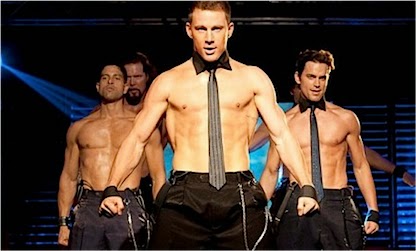Let's just get it out in the open, Channing Tatum: not bad on the eyes. However, his portrayal of Olympic gold medalist, Mark Schultz in Foxcatcher gave him the opportunity to showcase his talent as a dramatic actor. I am used to seeing him in corny action films or silly comedies like 21 Jump Street and Magic Mike, however he was really able to push his limits and give a respectable performance.

 Foxcatcher was a proving ground
for Mark Ruffalo as well, and he was sensational as Mark
Schultz’ older brother, Dave. I have never been disappointed watching him on
screen since he easily morphs into each character. For instance, Thanks
for Sharing
is a story which follows a group of recovering sex addicts as they struggle
with daily battles against the disease. Mark Ruffalo’s character was one of the
recovering addicts; he looked hard, like he had been through the
ringer, and he held his body conveying that same message. However, in The
Kids Are Alright, he was laid back, lackadaisical, and somewhat carefree.
And in Foxcatcher, his eyes are the only thing that give him away as himself. The best way to describe him is as a chameleon and the only way to
understand is to go on a Mark Ruffalo movie binge.
Foxcatcher was a proving ground
for Mark Ruffalo as well, and he was sensational as Mark
Schultz’ older brother, Dave. I have never been disappointed watching him on
screen since he easily morphs into each character. For instance, Thanks
for Sharing
is a story which follows a group of recovering sex addicts as they struggle
with daily battles against the disease. Mark Ruffalo’s character was one of the
recovering addicts; he looked hard, like he had been through the
ringer, and he held his body conveying that same message. However, in The
Kids Are Alright, he was laid back, lackadaisical, and somewhat carefree.
And in Foxcatcher, his eyes are the only thing that give him away as himself. The best way to describe him is as a chameleon and the only way to
understand is to go on a Mark Ruffalo movie binge.
I was also looking forward to seeing Steve Carell in a more serious role. Carell is very well known for comedy and he is one of the best, but it is much more interesting to see someone step out of their comfort zone. Carell did this a bit in Dan in Real Life and The Way Way Back (which I highly recommend), but both were more “dramedies” than true “dramas”.

Being extremely versatile is one factor that qualifies someone as "talented". Foxcatcher allows actors who have already demonstrated their abilities in a particular field, to stretch themselves and prove that they offer more to their craft. 7/10













